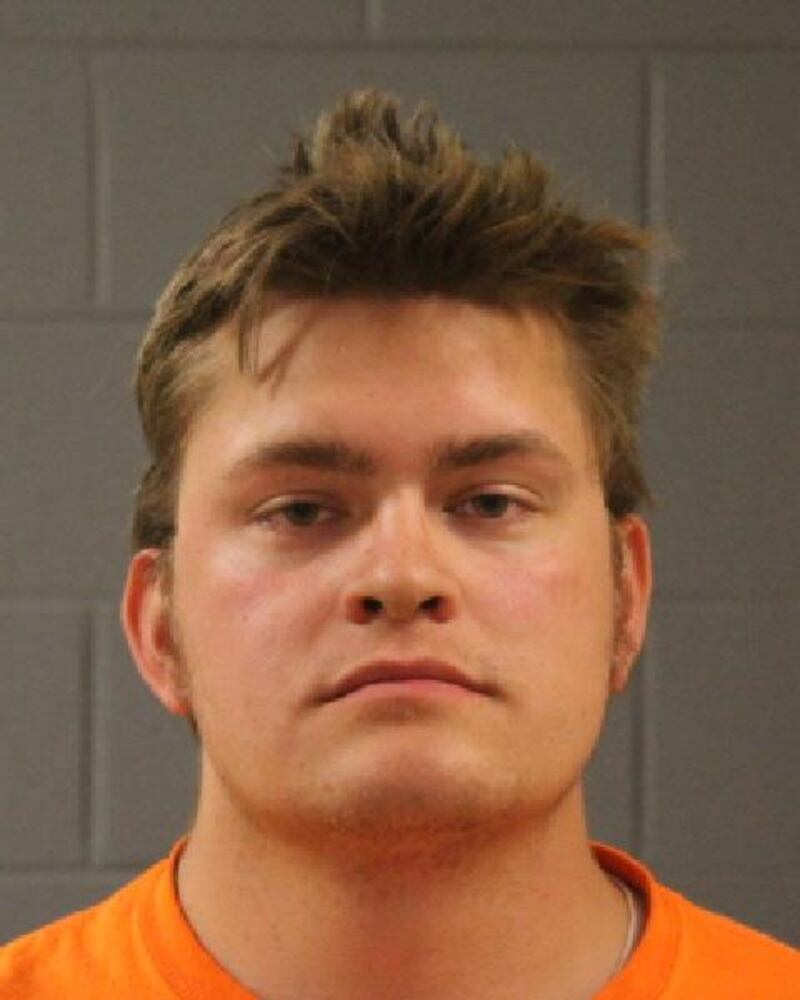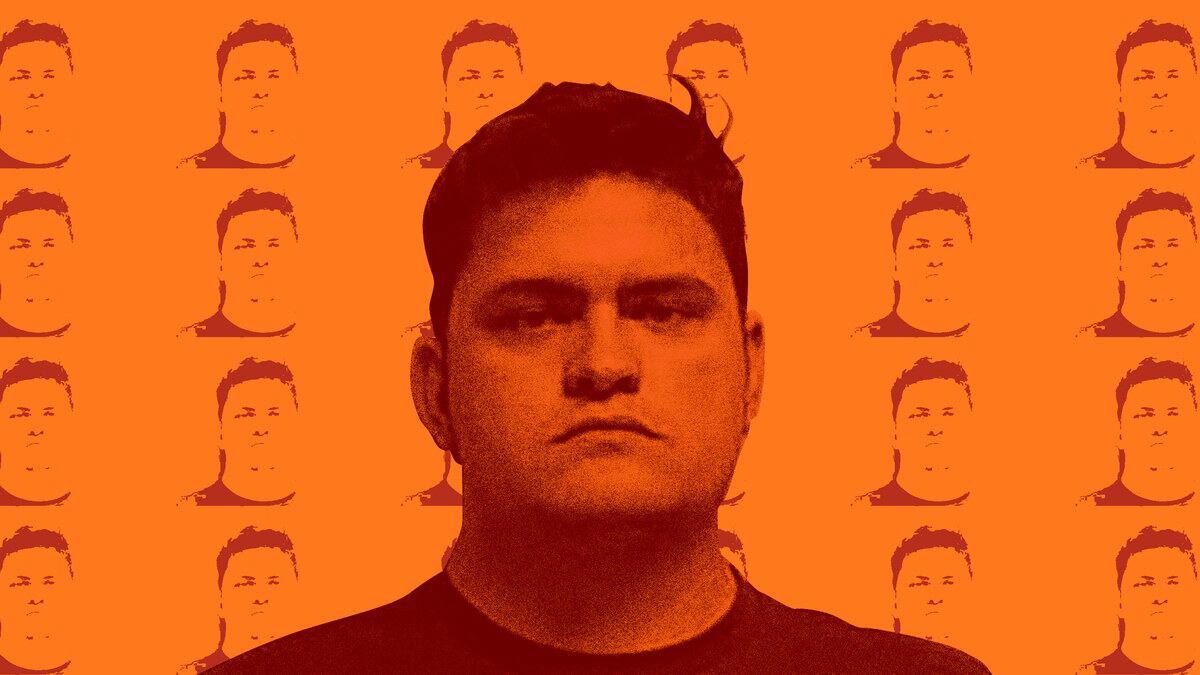The news hit Madeline MacDonald “like a one-two punch.”
Her mother was on the other end of the phone telling her that the man she and two other young women had accused of sexual assault was acquitted of raping a fourth victim.
Then came the real shocker. Just two weeks after being found not guilty in late January, Samuel Heber Butler, 24, had been arrested again—this time for allegedly molesting a 6-year-old girl.
“This case exemplifies every failure in the Utah criminal justice system,” MacDonald told The Daily Beast this week.
She said that it should have come as no surprise to law enforcement that Butler would allegedly target a child: Five years ago, he reportedly confessed to police that he had abused three young girls while an adolescent.
No charges were brought against Butler then. And there were no charges after he allegedly groped MacDonald against her will in 2014, or when he allegedly raped a Utah State University student in 2015, or when he allegedly got physically aggressive with a date in 2016.
It wasn’t until April 2017 that Butler was charged with a crime—allegedly raping a Dixie State University student—after a campus police chief unearthed the earlier allegations against him.

Samuel Heber Butler was acquitted of raping a young woman at trial. Two weeks later, police said, he sexually assaulted a 6-year-old.
Washington County SheriffBut when Butler went on trial in southern Utah last month, jurors didn’t hear about his past.
The Washington County prosecutor, Ryan Shaum, told The Daily Beast that the defense challenged plans to bring up the prior allegations, and he felt the case they had was strong enough without them.
After all, the evidence included a text message exchange in which the accuser told Butler, after they connected on Tinder, that she would not have sex on the first date.
Perversely, even in the #MeToo era, that may have worked against the prosecution: Shaum concluded jurors in the socially conservative state viewed the dating app as a “hookup site” and felt the accuser was looking for sex.
“I got the sense from them that they were applying their own standards for what they thought was appropriate,” Shaum said.
On Jan. 31, after just three hours of deliberation, the jury found Butler not guilty.
That's why, on the night of Feb. 12, Butler was not in jail but in the Provo home of a woman he had been dating, the mother of the 6-year-old.
According to a probable cause statement filed in court, Butler and the child fell asleep on the couch and her mother retired to the bedroom.
“During the night...Defendant disrobed, and removed Victim’s pants and underwear,” police wrote. Butler exposed himself and fondled and digitally raped the child—then apologized and told her he wanted to “marry her,” the girl told police.
She ran to her mother and asked if she could sleep in the bedroom because Butler kept touching her, the police statement said. When the mother confronted him, he allegedly offered her money not to call police.
The mother dialed 911 and, according to the police narrative, “when it became apparent that Victim’s mother had called police, [Butler] retrieved a knife from the kitchen, went outside and began cutting his wrists. Defendant left the area in his van, however, before officers arrived.”
He surrendered the following day and has been jailed since on five felony charges, including rape of a child and sodomy of a child. He has not been assigned a new attorney, and the lawyer who represented Butler at the January trial declined to comment, as did Butler’s family.
Utah is a low-crime state, but rape is on the rise. In 2018, overall crime dropped 12 percent while sexual assaults rose 4.5 percent—the fifth consecutive increase.
In 2017, the Salt Lake Tribune won a Pulitzer Prize for its investigation of rapes on college campuses. For the last several years, the newspaper has also been chronicling the twists and turns of the Butler investigation, obtaining police reports that revealed what women reported and how authorities handled those complaints.
Butler met his adult accusers through dating apps. They say they were up-front about not wanting to have sexual contact but that he ignored that and became aggressive, persisting over their protests.
The first case was MacDonald’s. She was a freshman at Brigham Young University in December 2014 when she met Butler on Tinder (which was owned by The Daily Beast parent company IAC). She said she told him she would not have premarital sex but would meet for hot chocolate.

Melanie MacDonald says authorities declined to charge Butler after she accused him of sexual abuse.
Courtesy Madeline MacDonaldAccording to MacDonald’s police statement, Butler drove her to a remote parking lot and began groping her and putting his hands under her clothing as she tried to fend him off. “I felt violated by how he wouldn’t take no for an answer,” she said in the statement.
After reporting the incident, no charges were brought. As the Tribune reported, a police detective told her he didn’t even interview Butler but that prosecutors did not want to take the case because there was “some participation on your part.”
“On a moral standpoint...what he did was wrong... he pushed things farther than you wanted it to go,” the detective said, according to a recording that MacDonald made of the conversation. “On a criminal level, prosecutors still just don't feel they have enough to push it.”
Not only was there no arrest, but BYU opened an investigation of MacDonald for violations of the Mormon school’s strict honor code. A BYU investigator interviewed Butler, who claimed he stopped when MacDonald asked him to stop, according to the Tribune.
In March 2015, Butler met another college student, from Utah State University, on a dating app. A police report obtained by the Tribune said he drove her to an out-of-the-way location and coaxed her into the back seat.
She said she asked him to stop undressing and touching her; instead, she alleged, he raped her. “[She] felt paralyzed and thought the only way to get Sam to stop was to just let him do what he wanted,” police wrote. Several months later, the woman told police she would not testify and wanted the case closed.
In February 2016, a woman reported Butler had driven her to Provo Canyon and groped her against her wishes; Butler claimed that the woman never asked him to stop and that he did so on his own. The woman, who was 20 weeks pregnant, stopped communicating with police soon after her complaint.
In between those last two incidents, police had a disturbing encounter with Butler. As he walked down a highway, he called 911 and said he was suicidal. As the St. George Spectrum later reported, Butler allegedly told the officers who responded that he felt bad he had molested three girls, ages 4 or 5, eight years earlier when he was about 12.
Local authorities reportedly followed up on two of those cases but the girls named did not recall or confirm any inappropriate touching and Butler was off the hook.
In January 2017, however, Butler was back on law-enforcement’s radar. A Dixie State University student reported that she met him on a dating app and agreed to meet for coffee.
The young woman said Butler drove her to his apartment instead under the pretext of watching a movie. She said she rebuffed his advances several times, but he would not stop and forced her onto the mattress and raped her while she was “frozen.”
The campus police chief who investigated her complaint discovered the previous accusations, and that in April, Butler was charged with rape and pleaded not guilty.
It would be more than two years before the case went to trial. Among the delays: a fight over whether prosecutors could use prior police reports against Butler to show a modus operandi.
Shaum said a lower-court judge decided to allow it, but the defense appealed. Two of the previous accusers could not be found and Schaum said he worried that the third case, involving MacDonald, wasn’t similar enough to qualify under Utah’s modus operandi standard. So, he said, he withdrew his application to bring up the other cases.
Both the accuser and Butler took the stand and told their stories.
“I had told him no and he wasn’t listening to me,” the former Dixie State student told the court, according to the Tribune. “So I wasn’t sure what to do and I kind of froze up.”
Butler insisted she was a willing partner and that he had not gone further than she wanted him to.
“Do you believe you did anything without her consent?” his lawyer asked.
“I did not,” Butler replied.
After the jury came back with the verdict, Shaum spoke to them about their decision-making. He believes the fact that the accuser used the word “fuck” when she told Butler she would not sleep with him was seen as a mark against her.
“In 2020 hindsight, maybe we should have done something differently,” he said.
MacDonald told The Daily Beast she had not been following the trial. She recently left Utah and moved to Seattle, where she works in tech and is now more involved in general political activism.
Even at a distance, though, hearing how the case ended up was a terrible shock. She said she was reminded of all the opportunities authorities had to take action against Butler over the years. The fact that the latest accuser was a 6-year-old child was an especially gutting outrage.
“This rests on the head of everyone in the criminal justice system,” she said.
Shaum said he was in Salt Lake City when he got news of Butler’s new arrest from a TV reporter.
“I was devastated and I was mad,” he said. “This shows we have a long way to go to get justice for women and children—and that there’s more education that’s needed that no means no.”





